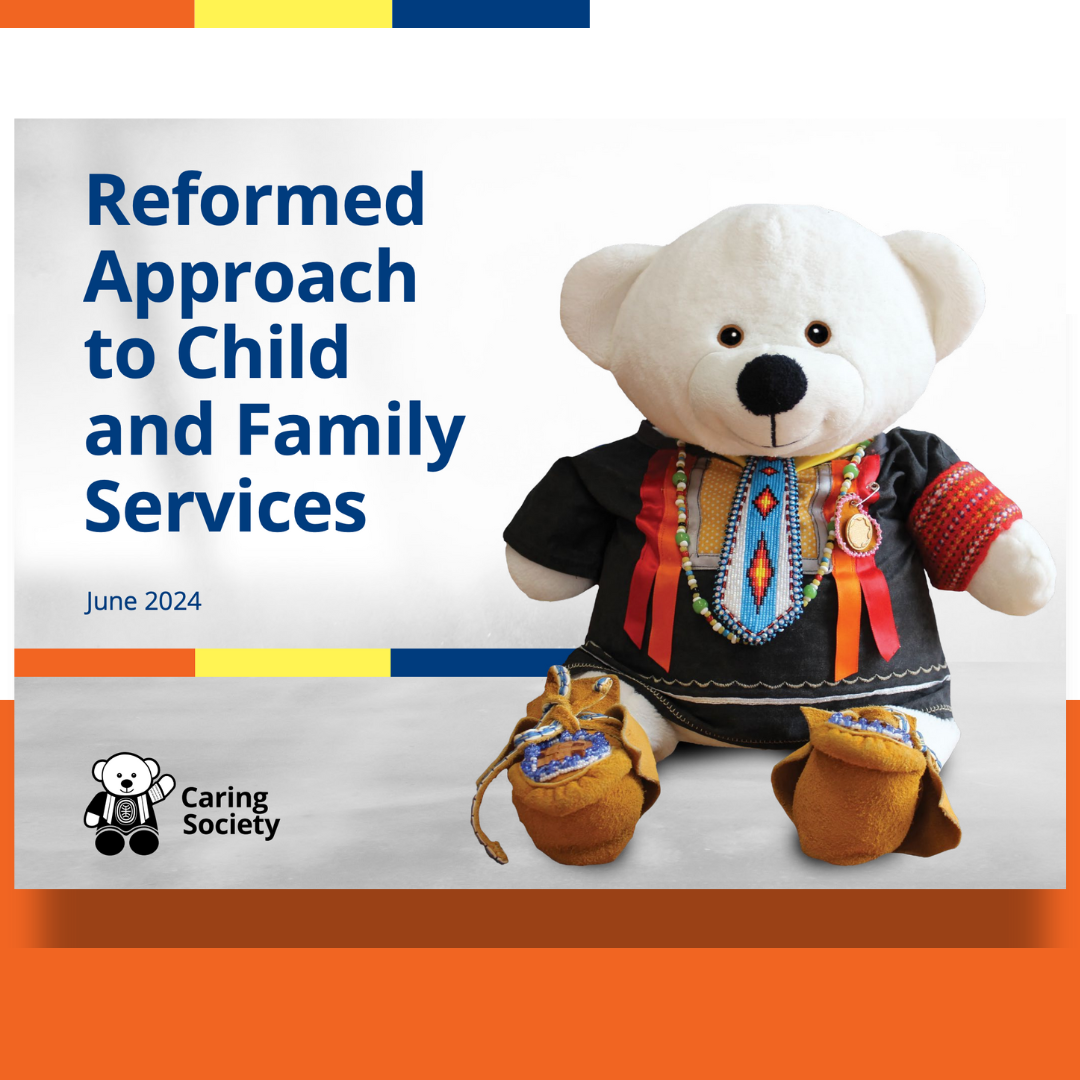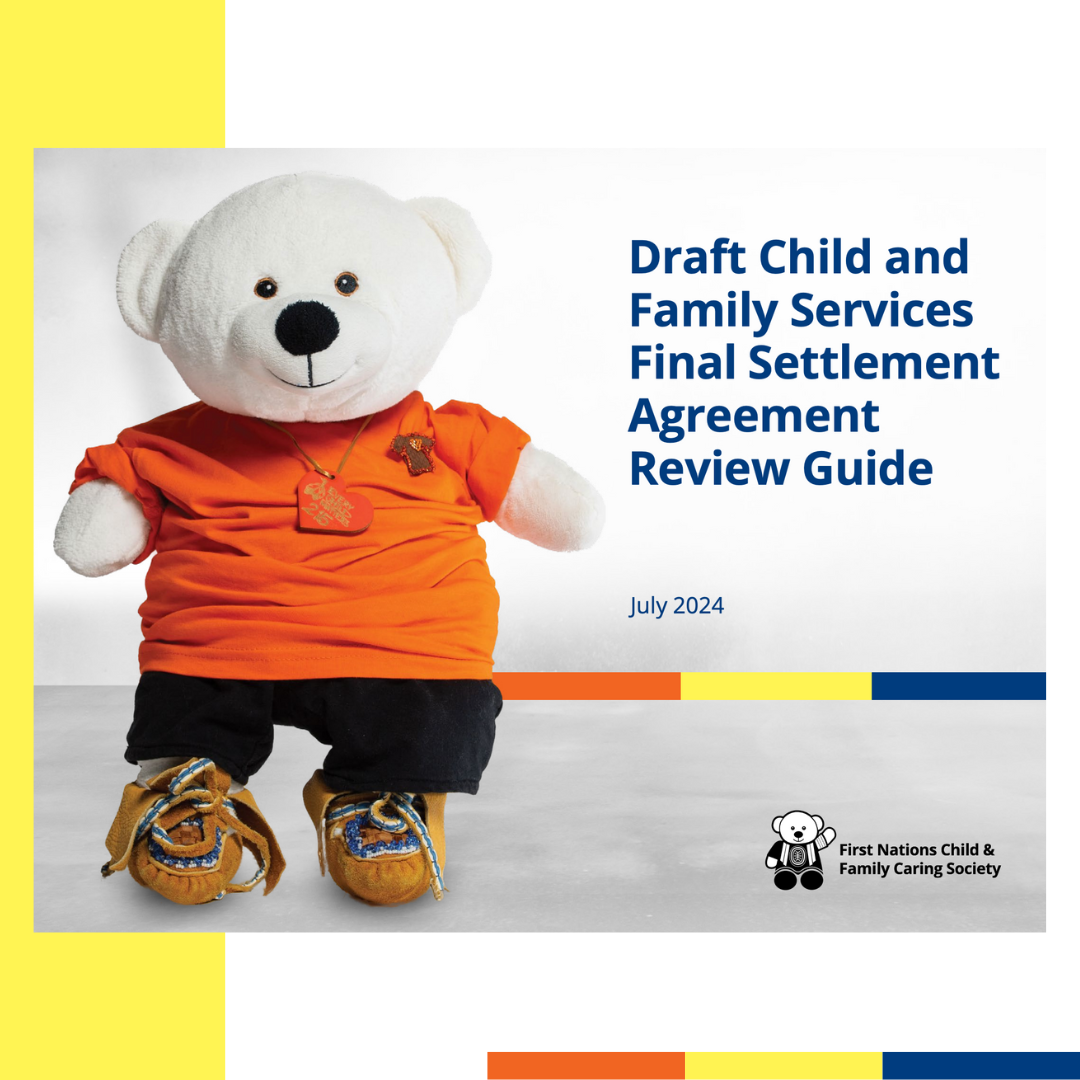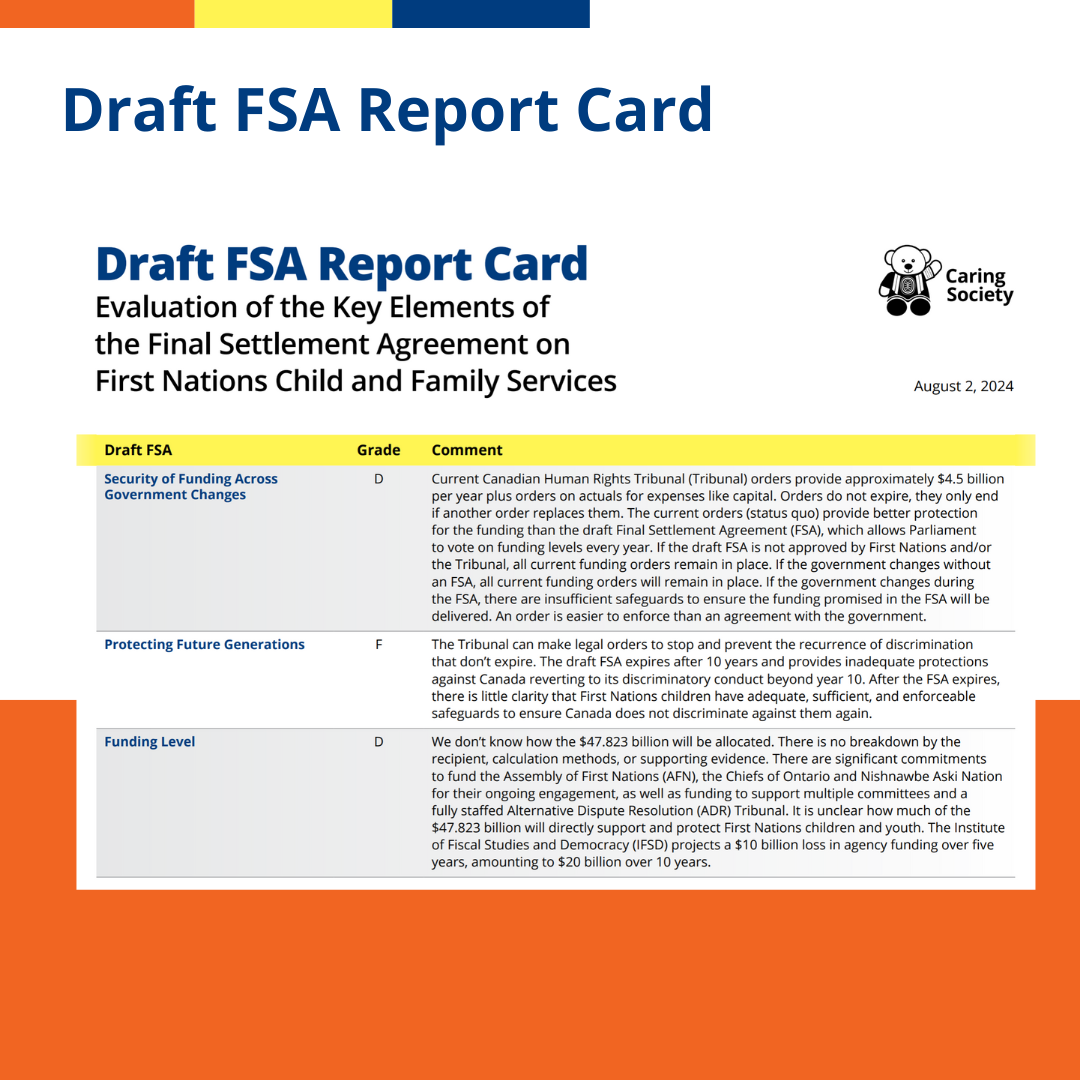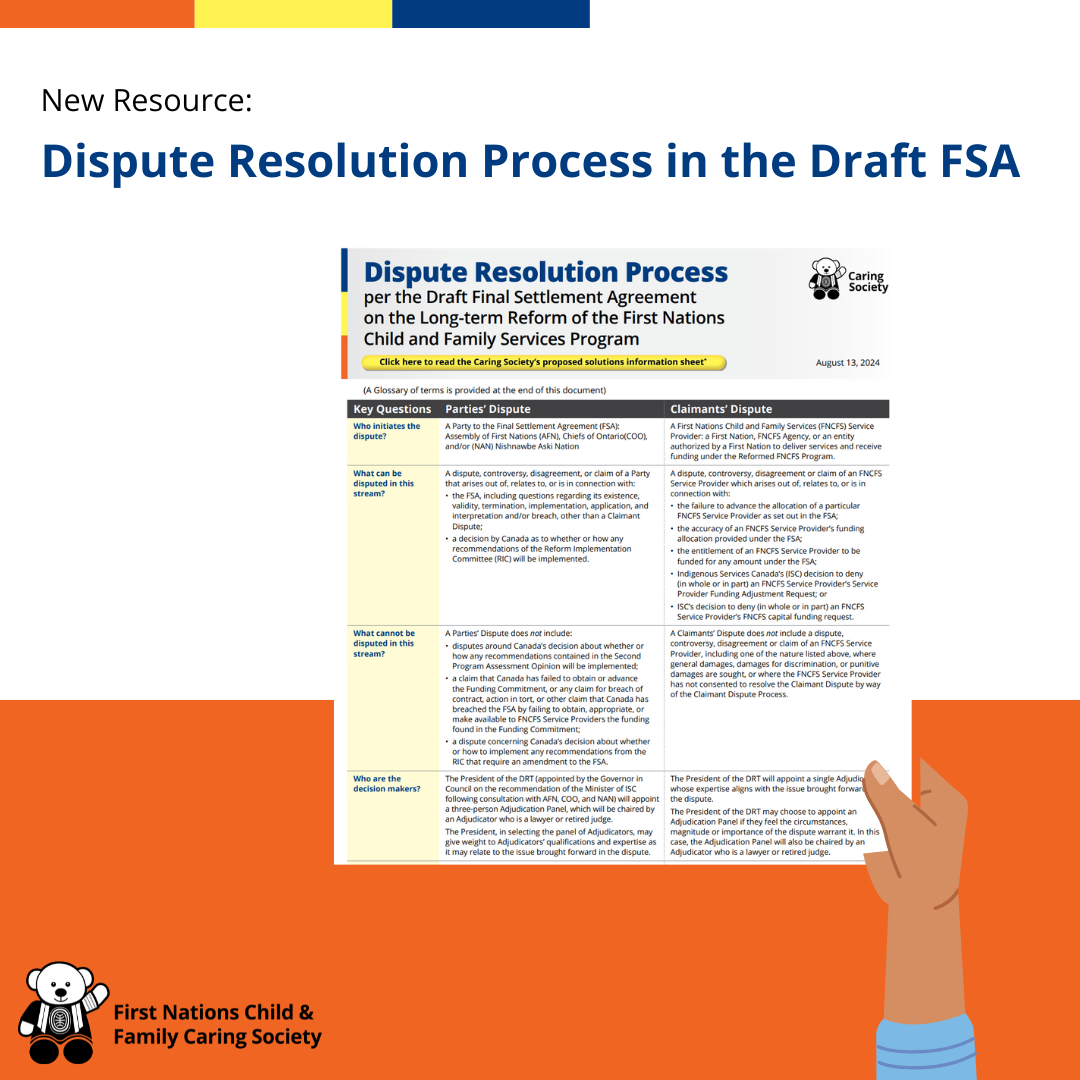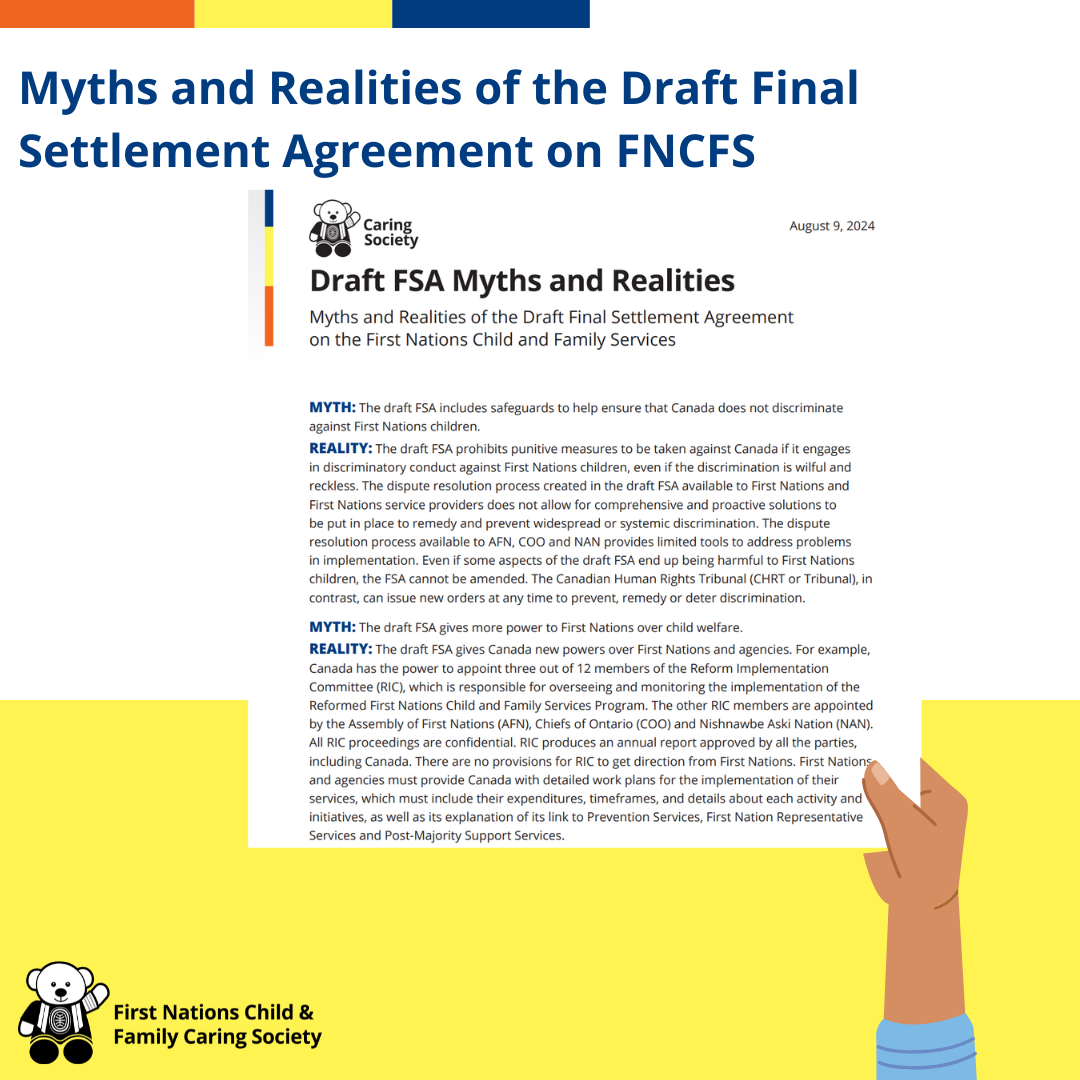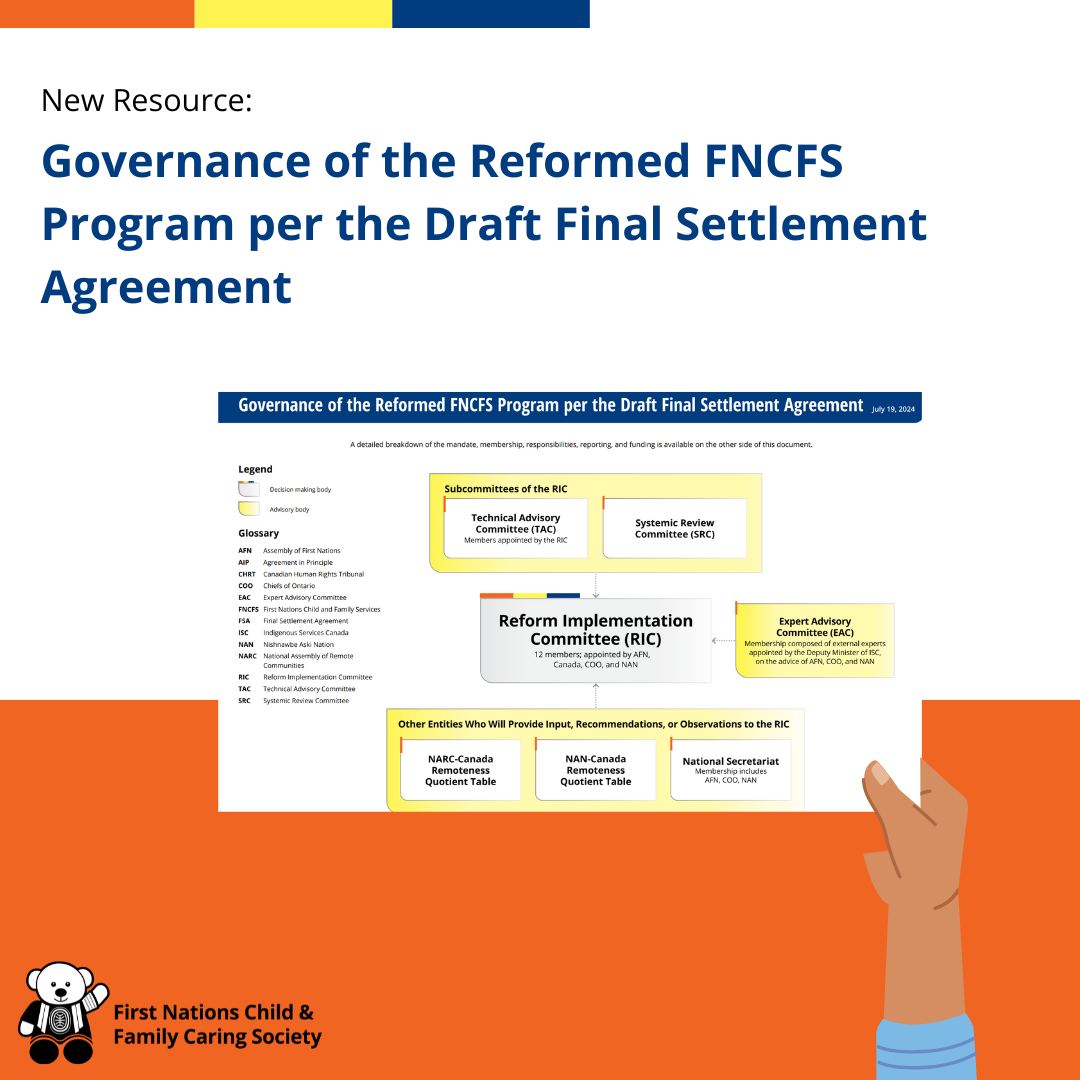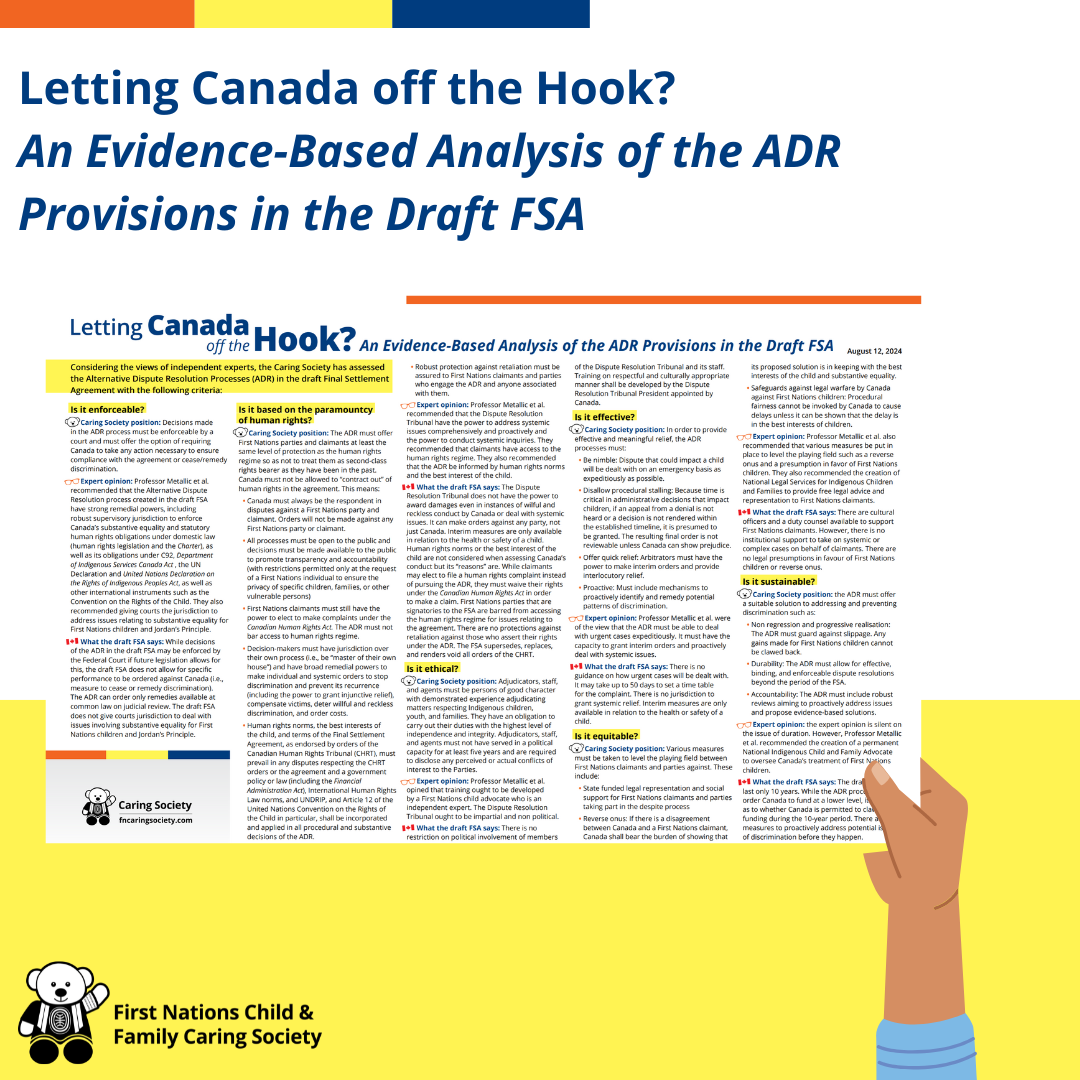La réforme à long terme du programme des SEFPN
Le 20 août 2025, le Tribunal canadien des droits de la personne (le Tribunal) a rendu la décision 2025 CHRT 80, ordonnant au Canada, ainsi qu'aux co-plaignants dans l'affaire First Nations Child and Family Caring Society of Canada et al. c. Procureur général du Canada, de procéder sans plus tarder à la réforme nationale à long terme des Services à l'enfance et à la famille des Premières Nations (SEFPN). L'ordonnance exige que les parties soumettent leurs solutions pour une réforme nationale à long terme, élaborées séparément ou conjointement, d'ici décembre 2025. Cela se fera parallèlement et séparément de l'accord de l'Ontario (OA).
Compte tenu du refus du Canada de poursuivre les négociations depuis que les Premières Nations réunies en assemblée ont voté contre l'accord de règlement définitif proposé en août 2024, la Société du Soutien et l'APN ont convenu de travailler ensemble à l'élaboration d'un plan de réforme à long terme du programme des SEFPN. La Société du Soutien et la Commission nationale des chefs pour les enfants (CNCE), mandatées par l'APN pour mener la réforme du programme des SEFPN, ont collaboré afin de soutenir l'engagement communautaire et de recueillir les commentaires régionaux à l'aide d'outils tels qu'un guide d'engagement, en ciblant des thèmes de discussion et en proposant des questions pour encourager les commentaires.
Ce processus est mené indépendamment du Canada et vise à respecter l'ordonnance du Tribunal visant à mettre fin de façon permanente à la discrimination dans le programme des SEFPN. Il est important de noter que le Canada a déposé une demande de contrôle judiciaire de l'affaire 2025 CHRT 80, à laquelle la Société du Soutien s'oppose vigoureusement.
Calendrier de la consultation :
1er octobre 2025 : Publication des documents de consultation en français et en anglais.
Du 1er octobre 2025 au 14 novembre 2025 : Séances régionales de rétroaction avec les dirigeants, les experts et les titulaires de droits.
Du 14 au 28 novembre 2025 : Collecte et consolidation des commentaires régionaux, rédaction du plan national et des mesures correctives.
Du 28 novembre 2025 au 5 décembre 2025 : Examen et validation du plan national et des mesures correctives avec les dirigeants, les experts et les titulaires de droits.
Du 5 au 20 décembre 2025 : Finalisation du plan national et des mesures correctives.
20 décembre 2025 : Soumission du plan national au Tribunal canadien des droits de la personne.
Des ressources supplémentaires sont en cours de traduction et seront bientôt disponibles.
Cette page est une ressource évolutive, nous partagerons les nouvelles informations dès qu'elles seront disponibles.

